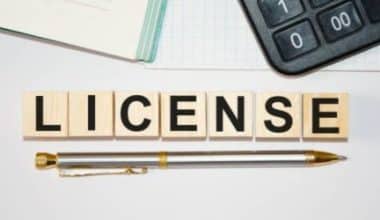Tax delinquent properties are those properties in which the owner fails to pay all or any of their tax obligations. The local government employs several measures to deal with this situation depending on the jurisdiction. They can either place a tax lien on the property or go through a rigorous process of acquiring tax deeds in order to foreclose on the property. This article will serve as a guide on how to buy tax-delinquent properties, outlining a sale list in different counties.
What Are Tax Delinquent Properties?
First of all the word “delinquent” means being neglectful of an obligation. It can also mean an offense of neglect and violation of duty.
Tax is basically the sum of money levied by the government for the support of the local government or state and its public services upon income earners, salespersons, property owners, etc.
From the meaning above, we can already tell what tax-delinquent properties are. These are properties whose owners have neglected to pay the requisite taxes on the property as required by law.
Taxes are levied by the county in which a person lives and must be paid each year. Furthermore, US Census Bureau statistics show that the average American homeowner pays $2,471 a year in property taxes. And because homeowners are liable for a slew of other costs, it’s understandable that some may find themselves in a tight spot where this payment might not be made on time.
Regardless of that fact, if the payment is not made as soon as required, the county can decide to place a tax lien on the property, which may lead to the property’s foreclosure. This is done to reimburse the government for the other payments that weren’t made
Here’s How it Works
Every year, counties sell their tax lien certificates at auction to the highest bidders. The county may also take into account the interest rate investors can charge the homeowner in order to recoup the property tax obligation from the homeowner.
Any fees or penalties that may have accrued on a tax lien must be paid by the investor before the lien can be purchased. After that, you’ll be able to recoup the principal and interest from the previous owner. Rate limits and payment schedules are determined by regional rules.
The investor has the legal right to possess the property’s title in the form of a tax sale if the homeowner fails to repay their debt.
How to Buy Tax Delinquent Properties
There are a few procedures or steps you must take in order to buy or make a wise investment in a tax sale or delinquent property if you want to obtain full ownership of the property. It’s important to remember, however, that the procedures for conducting a tax sale may vary from county to county and state to state.
The following are some of the procedures to buy tax-delinquent properties
#1. Have a Proper Investigation of the Properties of Interest
It’s important that you carry out the necessary investigation on the property you wish to purchase and make sure it’s a good investment. Investigations are important because if a property of interest has a tax lien, it’s most likely that there are additional liens as well. Hence, it is uncertain that this investment would pay off if there are other liens affixed to the property.
One consequence of purchasing a home with tax sales without proper investigation is that you are likely to lose the house entirely if you detect other liens on the property.
#2. Set a Budget for the Cash Amount You’re Willing to Pay on a Property
Because of the excitement that comes with auctioning, it’s easy for you to outspend way over what you might be willing to pay for a property. Hence, it is advised that you set a certain amount that you are willing to spend on a property. This is a good way to keep you in check so you don’t blow out your investment and budget.
Furthermore, as far as I know, the vast majority of auctions are cash-only. Each auction has its own set of rules, but in general, you should expect to pay a substantial sum in cash. Thus, regardless of how much money you have saved up for a car down payment, a personal loan, or a home equity loan from another property, you must have cash on hand to pay at auction events.
#3. Have a Bidding Strategy Planned Out
A bidding strategy should be laid out ahead of time. It’s a good idea to know about the neighboring house prices and the typical value of the property once you’ve finished any necessary renovations or repairs. If you’re aware of this, you’ll be able to measure or track the value of your investment. In most cases, houses are sold for the highest price possible. Keep in mind that you’ll face competition from other real estate investors, all of whom have the same goal as you.
#4. Keep Your End of the Deal Straight
At this junction, it’s time to keep your own end of the bargain; it’s time to pay up for the home you bid for. The entire sum must be paid either in cash or by a cashier’s check. In some jurisdictions, you may be given a grace period to pay down your balance. However, in some situations, you must pay immediately after the auction. Whichever way, you’ll need to be financially ready for the auction. That way, if your bid is successful, you can easily execute the payment.
Factors to Consider When Purchasing Tax Delinquent Properties
The following are factors to look into before thinking about or considering a tax sale purchase
- There can be a lot of competition when it comes to purchasing tax sales. It’s easy to overspend for a property if you’re new to the tax deed market. Hence, If you’re an experienced investor, you’ll have limited chances to make a fortune.
- Not all properties will be auctioned. If property taxes are paid in full or the homeowner declares bankruptcy, the county may cancel the auction. In certain cases, you may spend hours investigating multiple properties, but only one goes to auction.
- If you look hard enough, you may be able to locate an off-market property that offers a lucrative investment prospect. However, not all properties will be able to deliver a good ROI. So Before delving into this form of investment, be sure you know your state and local tax rules. Also knowing previous sales can help you find local offers. It helps you determine if the investment meets your goals and risk level.
Search for Tax Delinquent Properties for Sale
You can look up property transcripts by county, CS number, parcel number, or the name of the person who inspected the property when it was sold to the state.
Select the CS Number link to generate an online application once you’ve located a property you’d want to apply for. Enter your information exactly as it should appear on any documents you receive in the online application. It will not be possible to change your name, so ensure you fill in your correct name. All fields must be filled out. You will receive notification of the completion of the process once you have completed and submitted the application. Accepted applications will be given a price quote, which will be sent to the applicants only by email.
For further information, click here.
Sale List for Tax Delinquent Properties
You can see a list of tax delinquent properties for sale by visiting the Alabama Department of Revenue’s website.
Tax Lien Certain Sales and Tax Deed Sales
Tax deed sales, in contrast to tax lien certificate sales, are designed with the goal of purchasing the property and not only the tax debt. The winning bidder in a tax sale is entitled to the property’s ownership. A portion of the selling proceeds will be used to pay down the property’s tax liability, with the remainder going to the seller.
Furthermore, it’s possible in some states for a home’s original owner to reclaim possession by paying off a tax bill. However, there are no redemption periods in states that don’t allow buyers to take ownership of the property they’ve purchased.
In Conclusion
Investors are usually drawn to tax sales. However, inexperienced investors should be aware that purchasing a property with tax debt involves a significant amount of money and carries a high degree of risk. So instead of putting all of your savings into tax-delinquent properties, try investing in mutual funds or ETFs instead. Do your due diligence properly before investing in tax sales, and if necessary, consult a financial counselor.
TAX DELINQUENT PROPERTIES FAQs
How do I find tax delinquent properties for sale in my area?
- Get the sale list of tax delinquent properties from your county treasurer.
- Find out the price; it can be free or approximately $500.
- Send a letter of instruction and a check to the treasurer’s office.
- Specify the method you want to get the list in (email, mail, CD-ROM, etc.)
Why are properties sold at auction?
Houses are put up for auction because it is a faster and easier way to sell them. This makes it ideal for sellers who want or need to sell their homes quickly. It’s especially true for “problem properties,” which might be difficult to sell through conventional means.
Can someone take your property by paying the taxes in Oklahoma?
Oklahoma property tax arrears of three years or more might lead to a tax sale. Tax auctions happen when you ignore a county treasurer’s notice to catch up.






